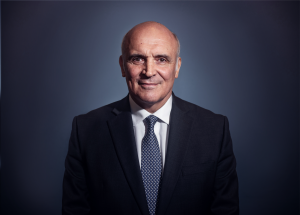BUENOS AIRES – Final election results Monday confirmed that Argentines have withdrawn all support for unpopular economic reforms demanded by the United States and other international lenders, leaving President Fernando de la Rúa without political backing and Argentina inching closer to default on a foreign debt now exceeding $130 billion.
Although De la Rúa’s ruling Alliance coalition held its ground, only coalition candidates opposing the president’s economic platform were running. That assured defeat of the president’s economic plan even before polling began Sunday to replace the entire Senate and nearly half of the Chamber of Deputies.
It was the first electoral test for de la Rúa after 22 disastrous months in office.
Forty months of recession and unemployment higher than 16 percent have raked Argentina. With an economy in the dumps and forecasts for a global economic slowdown, Argentina may be forced to default on its foreign debt, possibly sending shock waves through other indebted developing economies across the globe.
Markets reacted with calm Monday, awaiting an expected announcement later this week from Economy Minister Domingo Cavallo on new measures to stave off default or a devaluation of the peso.
Late last week, Argentina passed Nigeria as the country with the world’s highest risk rating, according to a JP Morgan calculation of risk premiums, which measures the level of interest rates investors demand before purchasing government debt.
On Monday, that risk rating worsened slightly on the announcement of final election results Voters fed up with a failing economy spoiled or left blank nearly a quarter of all ballots in a country where voting is mandatory. In Buenos Aires, spoiled and blank ballots outnumbered votes for any single candidate, with 27 percent. In the province of Santa Fe, spoiled and blank ballots exceeded 30 percent.
When those votes are combined with gains by splinter parties like that of anti-corruption crusader Congresswoman Elisa Carrió, the vote against Argentina’s establishment parties nationwide was more than 40 percent.
"It was a message, a total rejection of the Argentine political class. This is something historic," said Jose Luis Espert, a noted political and economic analyst in Buenos Aires. "People feel that when they pay their taxes, they are feeding the enemy."
Election results on Monday showed the Peronist Party, a populist party that ruled Argentina from 1991 to 1999, was the biggest winner. The party’s former and perhaps future presidential candidate, Eduardo Duhalde, was elected senator from the powerful province of Buenos Aires and Sunday night went on the attack.
"We know it is not easy to change, but we know it is suicide staying on this path," Duhalde said.
The Peronists kept control of the senate, became the strongest minority in the chamber of deputies and has governors in 13 of 23 Argentine provinces. De la Rúa may be forced to bring some Peronists into his government, telling the nation Sunday night he would shake up his cabinet.
He said that "things must change. For me and all who govern, it is our duty to hear the changes people are asking."
Although most candidates in and outside the ruling coalition ran on platforms against the current economic policy, none offered alternatives. The reality is Argentina is broke, and options are severely limited. The country is obligated to targets established by the World Bank and International Monetary Fund to post a zero deficit if it hopes to regain access to credit markets.

